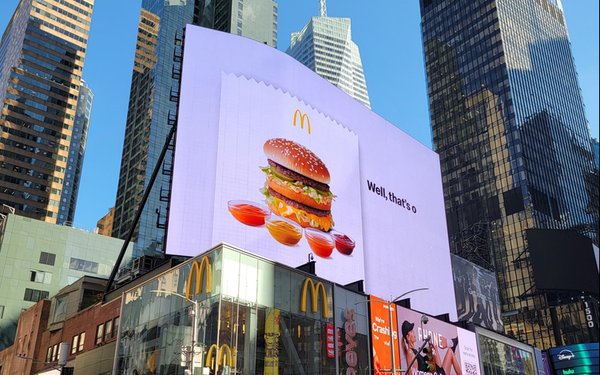
Ad industry and business organizations are urging
New York lawmakers to reject a bill that would restrict companies' ability to advertise food and beverages.
The proposed law (S
397) contains “vague and overly broad terms” that infringe on advertisers' and consumers' free speech rights, the Association of National Advertisers, American Association of
Advertising Agencies, American Advertising Federation, American Beverage Association and others say in a letter sent Wednesday to state senators.
The Senate bill and a companion measure in the
New York Assembly “run counter to First Amendment protections that have long been accorded to truthful and non-deceptive advertising,” the organizations write.
The stated purpose
of the bill, introduced last month by state Senator Zellnor Myrie (D-Brooklyn), is to prevent companies from marketing potentially unhealthy food -- meaning food “high in saturated fatty acids,
trans-fatty acids, and free sugars” -- to children. New York state law defines children as people under 18.
advertisement
advertisement
The measure currently has 11 co-sponsors in the state Senate, and is being
considered by the Consumer Protection Committee.
The bill would set out new standards for determining when food ads violate New York's law against false advertising. Those standards would
include whether the ads target consumers who are “reasonably unable to protect their interests because of their age, illiteracy, inability to understand the language of an agreement or similar
factor.”
The measure also lists factors to be examined when determining whether food ads are directed at children -- including whether ads use bright colors and animated characters,
feature child celebrities, or incorporate "buzzwords," "sayings," or "phrases" that are "trending” with minors. A separate factor is whether ads appear on social media.
The industry
groups argue that the bill's standards are not clearly defined, which could result in legal challenges and “unnecessary costs for businesses and the court system.”
For instance,
the groups say, the lawmakers don't explain how they would define buzzwords, sayings or phrases that are trending; the organizations also say the bill's reference to consumers who are
“reasonably unable to protect their interests” is unclear.
Additionally, the groups also take issue with the bill's definition of “child” as anyone under age 18.
That definition “could unnecessarily limit advertising targeted at adults, since minors might also see the ads,” the organizations write.
They also note that the bill's
treatment of ads appearing on social media would affect older teens.
“By listing social media as a factor, many older teenagers who utilize the numerous benefits of advertising provided
in the digital ecosystem would be included in this prohibition, as they use social media more than younger children,” the organizations write.